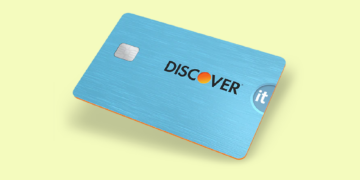Credit Card Rewards: Cashback, Miles, or Points?

Understanding Credit Card Rewards
Credit cards have become a popular financial tool, not just for making purchases but also for earning rewards. Knowing how to navigate these rewards can significantly enhance your spending experience. By understanding the different types of rewards available, you can tailor your credit card choices to fit your lifestyle and financial goals effectively.
Three primary types of credit card rewards are available:
- Cashback: This is one of the simplest and most straightforward reward systems. With cashback cards, you earn a percentage of your spending back as cash. For example, a card may offer 2% cashback on grocery purchases, meaning if you spend $100 at the grocery store, you receive $2 back. Some cards offer tiered rewards, meaning you could earn 1% on all purchases and 5% on specific categories that rotate quarterly, like gas stations or restaurants.
- Travel Miles: Travel rewards can be quite lucrative for frequent travelers. You accumulate miles based on your spending, which can be redeemed for flights, hotels, or even car rentals. For example, many airline-branded credit cards let you earn 1 mile for every dollar spent and offer bonus miles for signing up. These miles can eventually be redeemed for free or discounted travel, making it a valuable option for those who love exploring new destinations.
- Rewards Points: This type of reward system collects points that can be converted into various products or services. For instance, a card might offer 1 point per dollar spent, and once you reach a certain level, these points could be redeemed for gift cards, merchandise, or even travel discounts through a rewards portal. Many of these cards also have partnerships with hotels or retailers, allowing users to amplify their rewards through specific purchases.
Each reward type offers unique benefits tailored to different spending habits. For instance, if you often dine out or shop online, a card with robust cashback offerings may be ideal. Conversely, if you frequently travel for work or pleasure, a travel rewards card could provide substantial benefits that align with your lifestyle.
This article will guide you through understanding the pros and cons of each reward type. By the end, you will be equipped to make informed choices about which credit card rewards best suit your needs. Whether you aim to save for your next vacation or simply want to put some money back in your wallet each month, understanding credit card rewards can pave the way to better financial management.
CHECK OUT: Click here to explore more
Choosing the Right Type of Reward for Your Spending Habits
When it comes to selecting a credit card, understanding how rewards work in relation to your spending habits can make a significant difference in maximizing your benefits. Each type of reward—cashback, travel miles, and rewards points—serves different purposes and caters to various lifestyle choices. Let’s delve deeper into each type to help you determine which might be the best fit for your financial goals.
Cashback: Simplicity and Direct Financial Benefit
Cashback rewards are generally preferred by those who appreciate simplicity. The ease of earning a percentage of your spending back in cash makes this option appealing for everyday consumers. For instance, many cashback cards offer a flat rate of 1% on all purchases, which means even minor purchases accumulate rewards that can be redeemed as cash. Additionally, specific categories often yield higher percentages, such as 3% on dining and 5% on groceries.
The primary benefits of cashback cards are:
- Simplicity: The clear, no-nonsense payout structure makes budgeting easier.
- Immediate gratification: Cashback can usually be redeemed quickly, often directly applied to your credit account.
- Versatility: Cash can be used for any purchase, giving it a value that is universally accepted.
Travel Miles: Rewarding Adventurers
If you often find yourself jetting off for business or pleasure, travel miles could be your ideal choice. Credit cards offering travel rewards typically allow you to earn miles based on your spending, which can later be redeemed for flights, hotel stays, or even upgrades. For example, a common structure is to earn 1 mile for every dollar spent on general purchases, with increased earning potential for purchases made through specific airlines or travel-related services.
The advantages of using travel miles include:
- High-value rewards: Miles can be worth more than their cash equivalent when redeemed for travel-related expenses.
- Bonus offers: Many travel cards provide substantial bonus miles for new sign-ups, which can kickstart your rewards earning quickly.
- Partnership benefits: With numerous airline partnerships, you may have access to exclusive deals or discounts.
Rewards Points: Flexibility and Choices
Another popular option is rewards points, which offer greater flexibility in how rewards can be used. With these cards, you earn points for every dollar spent, often at a rate of 1 point per dollar. These points can be redeemed for a variety of items, such as gift cards, merchandise, or even travel discounts through specific portals.
Points reward systems can be particularly advantageous due to:
- Diverse redemption options: Points can be exchanged for a wide range of products or services, allowing you to choose based on your needs.
- Partnerships: Many points programs have collaborations with retailers, hotels, and airlines, giving users extra opportunities to earn.
- Potential for stacking: Points can often be combined with other rewards programs to maximize value.
In summary, the choice between cashback, travel miles, and rewards points depends largely on your spending habits and lifestyle. Understanding each category’s unique advantages and specifics can help you select a credit card that aligns with your financial goals and preferences.
CHECK OUT: Click here to explore more
Understanding the Value of Each Reward Type
While choosing between cashback, travel miles, and rewards points, it’s crucial to comprehend the overall value of each option. A significant factor influencing this decision is the concept of earning potential and how effectively it translates into real-world benefits. Let’s explore the nuances of each rewards system and how they can enhance your financial strategy.
Cashback: Calculating Your Earnings
If you favor cashback rewards, it’s essential to keep track of your spending habits to maximize your gains. For instance, consider a cashback card offering 1.5% back on all purchases and 3% back on groceries. If you spend $500 a month on groceries and $1,000 spread across other categories, your earnings would be:
- Groceries: 3% of $500 = $15
- Other Purchases: 1.5% of $1,000 = $15
In total, you would earn $30 in cashback rewards for that month alone. This straightforward approach makes it easier to understand the value of your cashback card. However, it’s essential to monitor annual fees associated with the card, as they can potentially offset your rewards.
Travel Miles: Maximizing Your Travel Experience
For travelers, travel miles can provide exceptional value, particularly when redeemed strategically. Take, for example, a scenario where a credit card offers 2 miles per dollar spent on travel and dining, and 1 mile per dollar on everything else. If you spend $400 a month on dining and $600 on general purchases, your miles accumulation looks like this:
- Dining: 2 miles x $400 = 800 miles
- Other Purchases: 1 mile x $600 = 600 miles
This totals 1,400 miles each month. When redeeming those miles for a flight that typically costs 25,000 miles, you would have the opportunity to book a great trip without any cash outlay. With travel rewards often offering promotions or bonus miles for specific airlines, you can also boost your rewards exponentially during your travels.
Rewards Points: Flexibility in Redemption Strategies
With rewards points, your redemption options can genuinely broaden your horizons, depending on how you choose to utilize them. Suppose your card offers 1 point per dollar spent, with the value of each point fluctuating based on redemption methods. For instance, redeeming points for travel might give you an equivalent value of 1.5 cents per point, while cashing out for gift cards may only be worth 1 cent per point. Let’s say you earn 10,000 points through your spending:
- Travel Redemption: 10,000 points = $150
- Gift Card Redemption: 10,000 points = $100
By being strategic about how you redeem your points, you can unlock greater value. Additionally, many rewards programs allow you to transfer points to hotel or airline partners, amplifying their worth even further, especially for those who frequently fly or stay at specific chains.
As you evaluate cashback, travel miles, and rewards points, keep in mind not only the rewards structure but also the costs associated with each card type. By carefully analyzing both your spending patterns and the respective benefits, you can confidently choose a credit card that fits your lifestyle and financial aspirations.
SEE ALSO: Click here to read another article
Conclusion: Choosing the Right Reward for You
In navigating the world of credit card rewards, the decision between cashback, travel miles, and rewards points hinges on your individual spending habits and financial goals. Each rewards system carries its unique advantages and can lead to significant savings or experiences when utilized correctly. Cashback is ideal for those who prefer straightforward benefits, allowing you to see tangible returns immediately in your account. If travel is a priority, accumulating travel miles can lead to incredible trips or experiences, especially when capitalized on during promotions or special events.
On the other hand, rewards points offer versatility, letting you decide how to maximize your returns through various redemption options. This flexibility can be appealing if you often find yourself alternating between travel, shopping, and dining. It’s important to remember that aligning the right reward system with your spending patterns maximizes its value. Consider your priorities: are you looking for cash on hand, dreaming of a vacation, or seeking varied redemption opportunities?
Ultimately, evaluating the full picture, including any fees that might detract from your rewards, will equip you with the insights necessary to choose the best card for your lifestyle. Whichever option you select, remember that a strategic approach can turn your everyday purchases into rewarding opportunities. By understanding each rewards structure, you can enhance your financial strategy and enjoy the benefits that come with smart credit card use.

Linda Carter is a writer and financial consultant specializing in personal finance and money management. With years of experience helping individuals and families achieve financial stability and make informed decisions, Linda shares her expertise on the True Metronome platform. Her goal is to empower readers with practical advice and strategies to take control of their finances and build a secure future.





